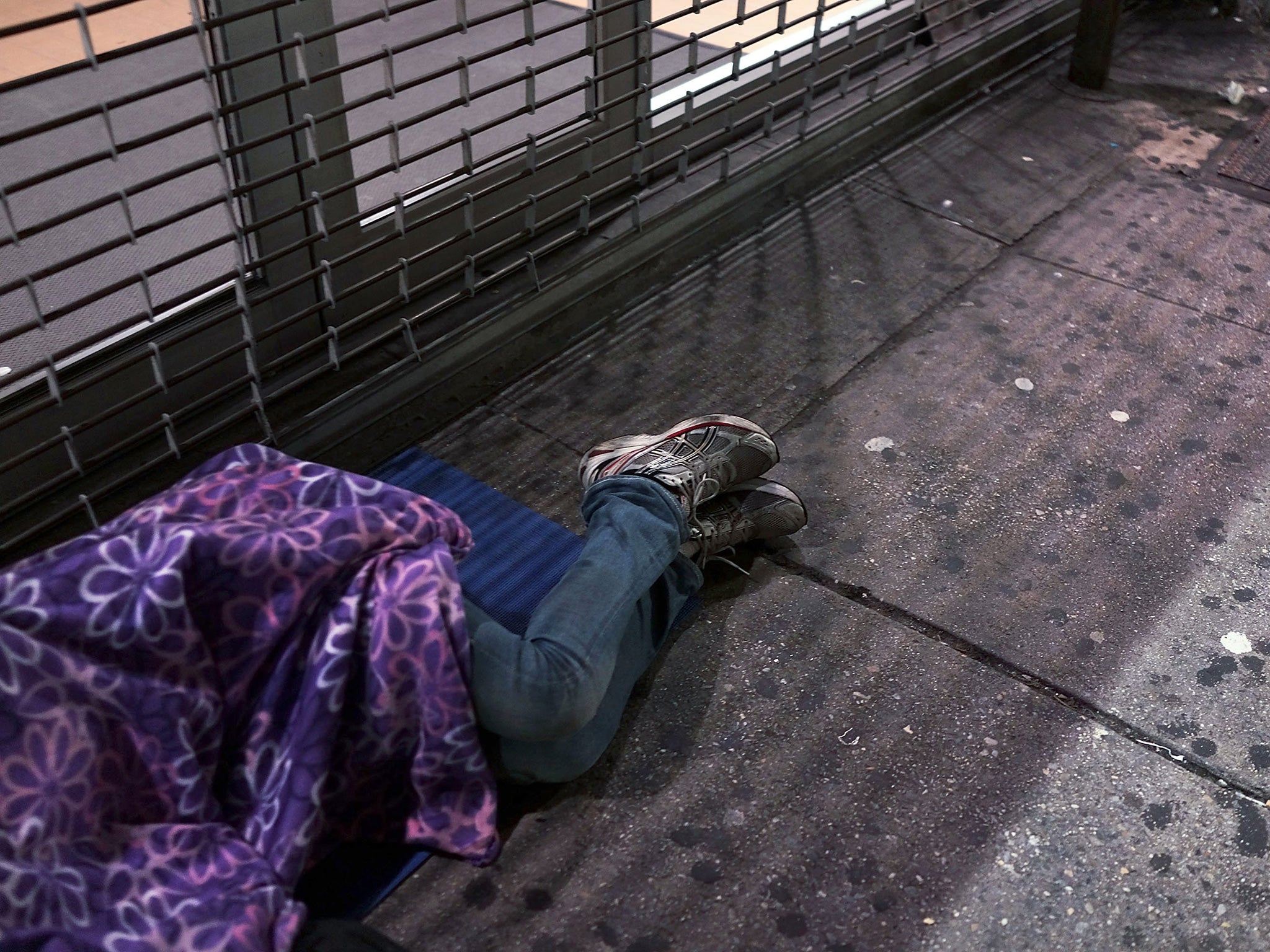Your support helps us to tell the story
From reproductive rights to climate change to Big Tech, The Independent is on the ground when the story is developing. Whether it's investigating the financials of Elon Musk's pro-Trump PAC or producing our latest documentary, 'The A Word', which shines a light on the American women fighting for reproductive rights, we know how important it is to parse out the facts from the messaging.
At such a critical moment in US history, we need reporters on the ground. Your donation allows us to keep sending journalists to speak to both sides of the story.
The Independent is trusted by Americans across the entire political spectrum. And unlike many other quality news outlets, we choose not to lock Americans out of our reporting and analysis with paywalls. We believe quality journalism should be available to everyone, paid for by those who can afford it.
Your support makes all the difference.Labour has moved to support the Government's plan to lower the benefit cap to £23,000, according to a statement made by interim leader Harriet Harman.
Responding to the Queen's Speech in parliament today Ms Harman said her party was “sympathetic” to cutting the maximum amount a family can be paid in benefits by £3,000, a provision in the Conservative manifesto and in the Queen’s Speech.
Labour's support for reducing the cap comes despite warnings from charities and researchers that it was already responsible for increasing homelessness and putting "children on the breadline".
Ms Harman outlined several caveats to Labour’s support, arguing that the lower cap should not put children into poverty or increase homelessness. She said discretionary housing payments and other measures could prevent the problems seen so far.
“We support a cap on household benefit entitlement. The government are now planning to reduce it and we are sympathetic to that but it makes it even more important that the jobs are there for people to move into, the childcare is there, particularly for lone parents and there are adequate funds for discretionary housing payments," she told MPs in her speech.
“All that is necessary to make sure that this doesn’t put children into poverty, increase homelessness, or end up costing more than it saves.”

Labour has previously shied away from supporting the Tories’ planned reductions in the cap's level to £23,000, though it has previously supported the higher cap. The manifesto the party stood on earlier this month pledged to set up an independent commission to look at whether lower levels were workable in certain parts of the country.
Labour’s support for the cap comes after research suggesting the policy would have a significant negative impact on families with children.
The Children’s Society says over 140,000 children are hit by the cap compared to only 60,000 adults while children are more than seven times more likely to lose out from its effects.
Matthew Reed, the charity’s chief executive, said at the time of the cap’s announcement that it would be responsible for “putting more children on the breadline”.
“This is a blunt instrument trying to solve a complex problem. The policy may be targeted at workless adults, but in reality children are seven times more likely than adults to lose out. We estimate that 140,000 children, compared to 60,000 adults, will pay the price as parents have less to spend on food, clothing and rent," he said in 2013.
“Families, especially in London where the cap is being launched, may have their lives disrupted as they are forced to find cheaper rents in other parts of the country, resulting in children having to leave their schools and friends and breaking vital support networks. The cap will also put pressure on public services in the communities where they are forced to relocate."
“We fully support efforts to make work pay. But it is not right to achieve this by putting more children on the breadline."
The annual Homelessness Monitor survey by the charity Crisis and the anti-poverty charity the Joseph Rowntree Foundation found in February this year that the benefit cap was linked with rising homelessness, especially in London.
The benefit cap was listed as one of the “most problematic aspects of the recent welfare reforms” alongside the bedroom tax and council tax reforms.

Join our commenting forum
Join thought-provoking conversations, follow other Independent readers and see their replies
Comments